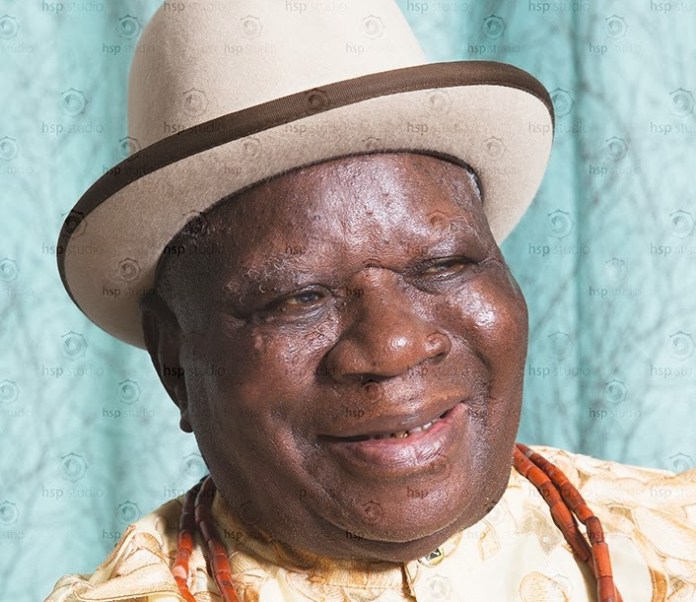By Juliana Taiwo-Obalonye
Nigerians, woke up to a rude shock on Tuesday, February 18, 2025, of the passing of Chief Edwin Kiagbodo Clark, a paramount leader of the Ijaw nation and a relentless advocate for the Niger Delta cause.
He was said to have died on Monday, February 17, at the age of 97, leaving behind a legacy defined by his unwavering commitment to justice, equity, and national development.
His family confirmed the news in a statement, expressing gratitude for the public’s prayers during this difficult time.
“The Clark-Fuludu Bekederemo family from Kiagbodo Town wishes to inform the public about the demise of Chief (Dr.) Sen. Edwin Kiagbodo Clark, OFR, CON. We appreciate your prayers at this time,” the family said.
A Life Dedicated to Advocacy
Born on May 25, 1927, in Kiagbodo, Delta State, Clark was not only a politician but also a prolific writer known for his open letters, addressing pressing national issues. His letters often tackled controversial subjects, including political crises involving prominent figures. One of his such letters was targeted at the Federal Capital Territory (FCT) minister, Nyesom Wike, and the opposition Peoples Democratic Party (PDP).
In that letter, which was specifically to address the political tensions in Rivers State, the late prolific writer warned that “the nation needs a strong structure—a nation with rules that will bind everybody.”
In August 2024, he wrote an open letter to the PDP’s Acting National Chairman regarding Wike’s alleged anti-party activities. He stated among other things that “the purpose of this Open Letter… is to call on you to immediately set up a probe panel… and if found guilty Wike should face appropriate sanctions as prescribed by the party’s constitution.” He further emphasised that “Wike is not above the party. He should be expelled from it.”
In another letter addressing Wike’s inflammatory remarks threatening violence against other PDP governors, Clark asserted: “Wike has committed treason; he should be arrested with warrant.” He condemned Wike’s threats as not only dangerous but also inciting public unrest.
“Wike believes that the only person he respects is the President… otherwise Nigeria will be in serious trouble,” the late elder statesman had said.
Clark’s advocacy for resource control was particularly significant to him and the people of the Niger Delta. He founded and led several organisations dedicated to these causes, including the Pan Niger Delta Forum (PANDEF), where he served as a guiding force even after stepping down from leadership roles.
Speaking Truth to Power
Throughout his life, Clark was unafraid to confront the authority. He famously stated: “Why should I be afraid to speak on issues that will lead to the nation’s development? Posterity will vindicate me.” This mantra guided his engagements with political leaders and highlighted his commitment to advocating for marginalised communities.
His open letters often addressed perceived injustices and urged accountability from those in power. For instance, in an open letter addressing President Bola Ahmed Tinubu regarding the deplorable state of roads in the South-South region, he lamented: “It is unimaginable that a region producing billions in revenue daily is burdened by impassable roads.” His calls for action underscored his belief that infrastructure development was crucial for national progress.
A Political Journey Rooted in Service
Clark began his career as a teacher before pursuing a law degree abroad and called to the bar in England. His early involvement in politics included serving as a councilor during Nigeria’s anti-colonial movement and later as Federal Commissioner for Information under General Yakubu Gowon from 1975 to 1978.
His contributions to education were notable; he served as Commissioner for Education in the Mid-Western Region under Governor Samuel Ogbemudia in 1966. During this period, he was instrumental in establishing educational institutions that laid the foundation for future generations.
Legacy of Leadership
Throughout his life, the late Edwin Clark exemplified consistency in his beliefs and actions. Unlike many political figures who shifted allegiances over time, he remained steadfast in his advocacy for justice and equity. His coalition-building approach allowed him to navigate Nigeria’s complex political landscape effectively.
Clark’s influence extended beyond politics; he was also a philanthropist who founded the Edwin Clark Foundation and established Edwin Clark University in his hometown. His commitment to empowering others through education reflected his belief that knowledge is key to societal progress.
A Nation Mourns
The news of Chief Edwin K. Clark’s death has reverberated across Nigeria, eliciting tributes from various sectors of society. Political associates and community leaders have expressed their condolences, highlighting his role as a champion of marginalized communities.
As one associate noted: “He was a pillar of truth and justice for our people.” The loss of such an influential figure leaves a significant void in Nigerian politics and advocacy.
Reflecting on his life at age 90, Clark once said: “At 90, I can say that all my life’s aspirations have been fulfilled. I feel fulfilled. What am I looking for? I will be ungrateful to God if I feel I have anything left undone.” This sentiment encapsulates his unwavering resolve and dedication to serving others.
Chief Edwin K. Clark’s legacy will endure through the lives he touched and the causes he championed. As Nigeria reflects on his remarkable contributions, it is clear that his voice for justice and equity will be sorely missed by many across the nation.

